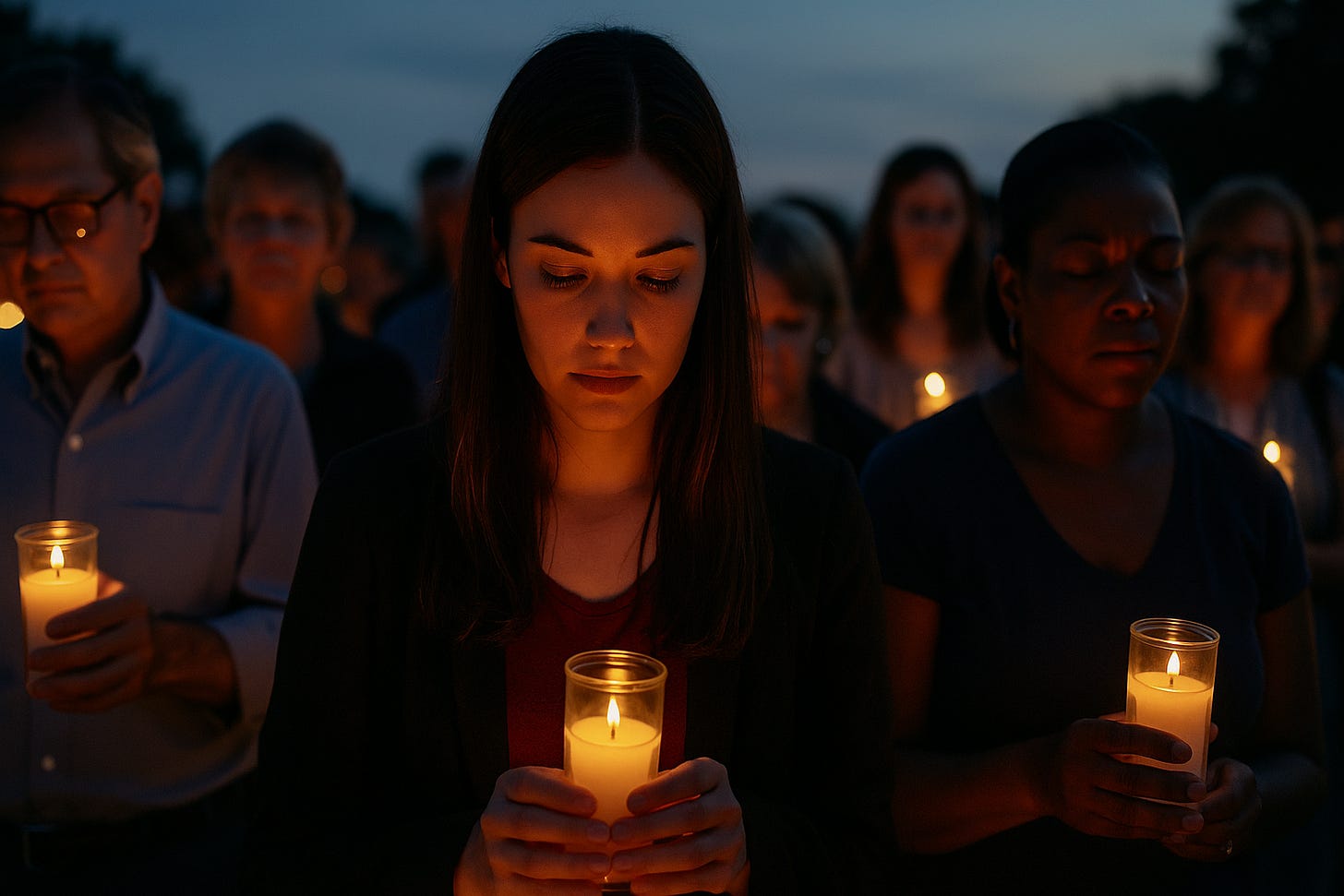How Many More Lives Must Georgia Lose Before Mental Health Becomes the Priority?
Three mass shootings in under two weeks make one thing clear: Georgia keeps mistaking a crisis of care for a crisis of access.
In late July, gunfire ripped through Atlanta’s historic Sweet Auburn neighborhood, leaving one dead and ten injured in what police described as a street shootout. Less than two weeks later, at Fort Stewart, an active-duty Army sergeant opened fire on fellow soldiers, wounding five. And on August 8, a 30-year-old man walked into a CVS on Emory University’s campus — steps from the CDC — and killed a police officer in cold blood.
Three different places. Three different shooters. One common thread: every single one was an adult, legally allowed to own a firearm (as far as we know), whose decision to kill had nothing to do with whether Georgia passed one more safe-storage law or background check tweak.
Yet, after the Emory shooting, Georgia Senate Democratic Caucus Chair Elena Parent stuck to the script. She blamed the “availability of guns” and accused Republicans of making them “more prevalent and deadly.” Georgia NAACP President Gerald A. Griggs echoed the refrain, declaring, “We deserve real gun reform. No more excuses. No more waiting.”
That might sound satisfying in a press release, but it’s policy malpractice when the facts show otherwise. When leaders frame every tragedy as a gun problem, they sidestep the uncomfortable reality: these shooters weren’t stopped because the warning signs went unaddressed. None of these men were minors sneaking weapons out of an unlocked drawer. None were thwarted by “gun-free zones.” They already had legal access, and they ignored all the laws in place before they pulled the trigger.
In fact, the Emory/CDC shooter’s case makes the mental health crisis impossible to ignore. According to law enforcement, 30-year-old Patrick Joseph White told family and neighbors he believed the COVID-19 vaccine had made him depressed and suicidal. He’d recently lost his dog, become increasingly fixated on anti-vaccine conspiracy theories, and even tried to enter the CDC complex before opening fire across the street, killing Officer David Rose. He was armed with five guns — at least one a long gun — and put multiple CDC buildings under lockdown as terrified staff huddled inside.
This wasn’t a man who simply “had access to a firearm.” This was someone in visible mental decline, whose paranoia had been obvious to those around him, yet who remained free to spiral until his crisis exploded into violence. That’s not a gap a gun lock or new permit requirement would have closed — it’s a failure of early intervention and enforcement of mental health standards.
If gun access were the driving factor in Georgia’s violence, we’d see a pattern of minors or thieves with stolen weapons. Instead, the clearest case for safe-storage legislation in recent memory is the Apalachee High School shooting in 2024, where a teenager’s father ignored repeated warnings about his son’s conduct and still left firearms accessible. That was gross parental negligence — an entirely different problem than adult shooters in possession of their own legally owned guns.
If lawmakers truly want to reduce violence, they need to focus where the real failures are: in Georgia’s threadbare mental health system. That means earlier intervention, stronger civil commitment standards, and a willingness to act when someone is spiraling toward harm. It means creating crisis response teams, mandating evaluations after credible threats, and building cross-agency systems to flag high-risk individuals before they become headlines.
On that front, President Trump’s “Ending Crime and Disorder on America’s Streets” executive order points in the right direction. It empowers states to identify and redirect people in acute mental health or addiction crises — whether homeless or not — into treatment before they harm themselves or others. It will only succeed if Georgia pairs it with strong oversight and adequate services, but that’s an argument for building capacity, not abandoning the idea.
In 2022, Georgia passed the Mental Health Parity Act to better enforce the federal parity law from 2008. But as advocates like Eve Byrd of the Carter Center point out, a law on the books isn’t enough if it’s not enforced. Two years in, we still lack detailed data on violations, providers often fail to file complaints, and Georgians are still paying more out-of-pocket for mental health care than for other medical services. That’s where lawmakers should be focusing their energy: fixing the complaint process, demanding compliance from insurers, and holding providers accountable — not defaulting to more gun-control proposals that wouldn’t have touched Sweet Auburn, Fort Stewart, or the CDC/Emory campus.
Elena Parent’s and Gerald Griggs’s calls for “meaningful gun reform” may play well in partisan echo chambers, but they sidestep the root cause of these recent tragedies. Until Georgia builds a mental health system with real teeth — and the political will to use it — we’ll keep counting the dead while our leaders hold press conferences and pretend the next shooter can be legislated away with a padlock.
DeKalb County Police Officer David Rose gave his life protecting others during the CDC/Emory campus attack. A former Marine and new father-to-be, Officer Rose served with quiet courage and a deep sense of duty. He leaves behind a pregnant wife, two children, and a community that will feel his absence for years to come.



